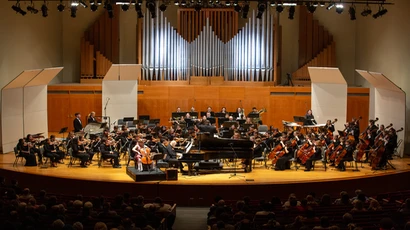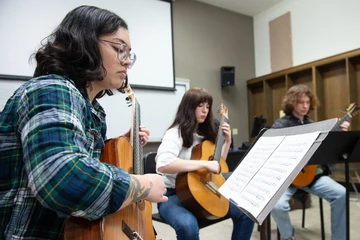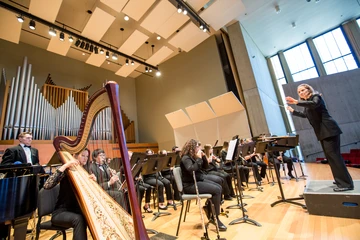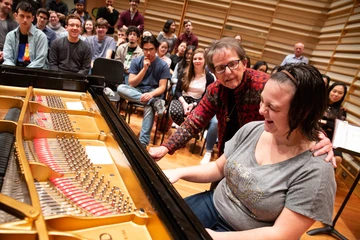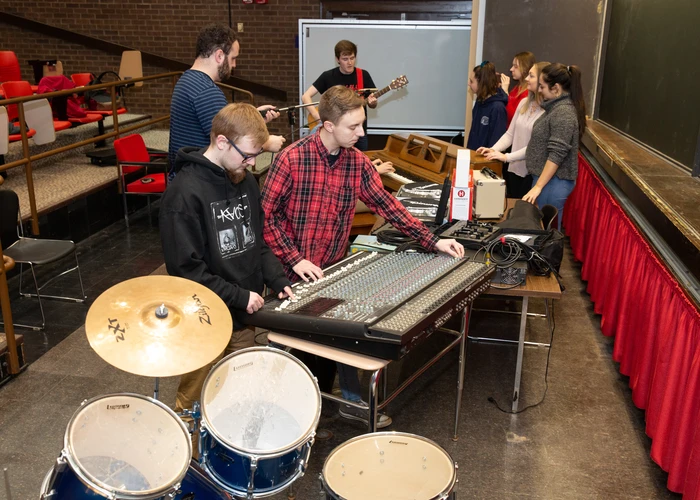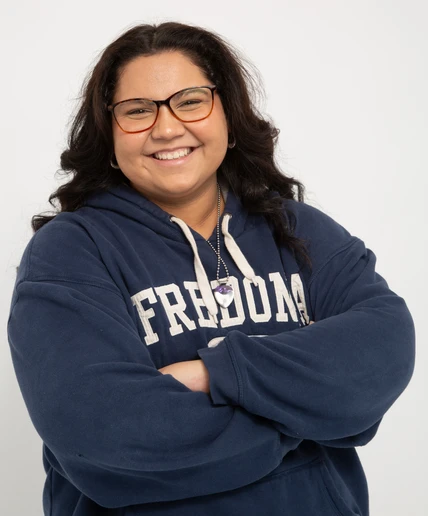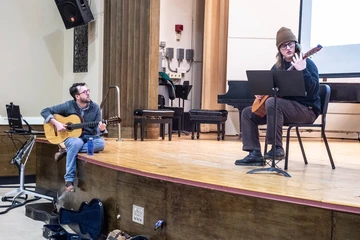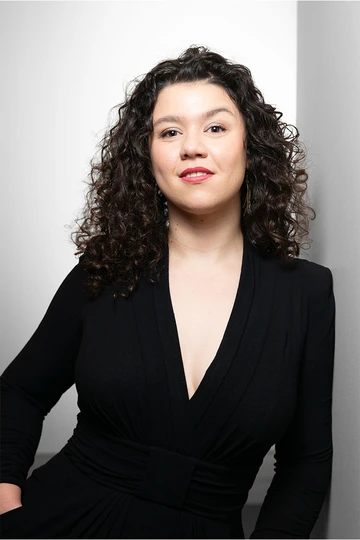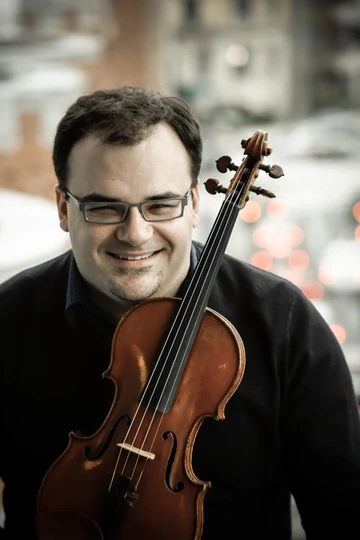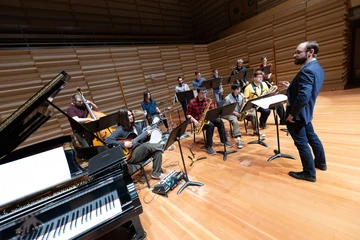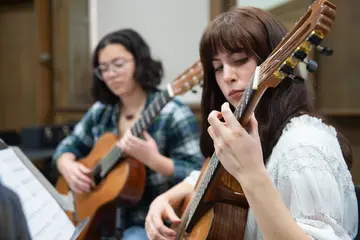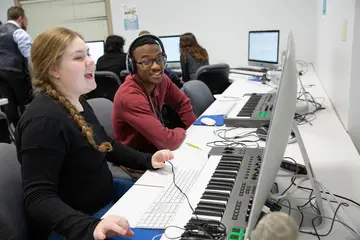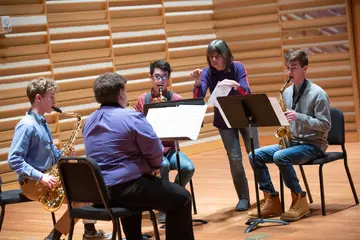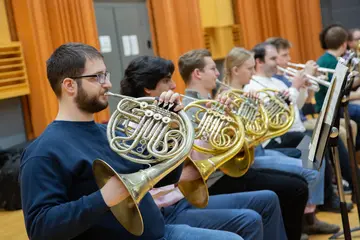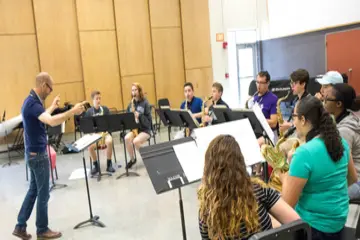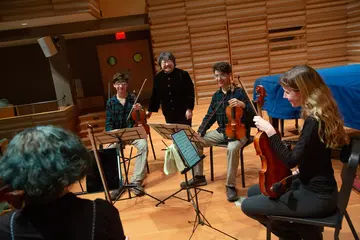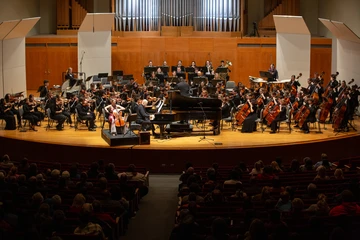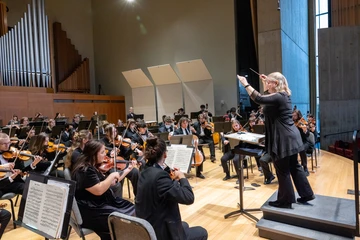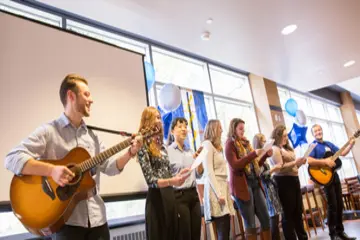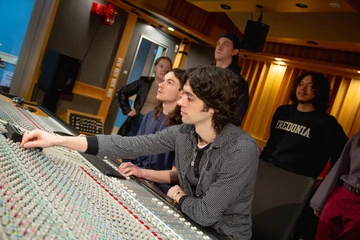Define Your Future Through Music.
If you’re serious about music and want something flexible and forward-looking, the Bachelor of Arts in Music at Fredonia is your stage. This program is built for bold thinkers—those who want to mix music with entrepreneurship, history, tech, jazz, or something entirely their own. With five distinct tracks to choose from and a curriculum that encourages self-direction, you'll get the solid foundation of a top-tier music school and the freedom to craft your own creative and professional path. Fredonia’s award-winning faculty, cutting-edge facilities, and personalized mentorship help you turn your passion into a profession—and your sound into something that lasts.
What You’ll Gain
- Versatility: Customize your degree with tracks in general music, jazz, entrepreneurship, technology, or music history & literature.
- Professional Preparation: Gain career-ready skills through experiential learning and real-world music projects.
- Creative Confidence: Learn how to shape, perform, and produce music that reflects your identity and vision.
- Technical Proficiency: Access state-of-the-art music labs and tools used by professionals in sound recording, composition, and production.
- Artistic Collaboration: Work closely with faculty, peers, and guest artists to push the boundaries of your craft.
- Holistic Growth: Grow in a community that values wellbeing, creative risk-taking, and lifelong learning.
- Liberal Arts Perspective: Blend your music training with studies in business, science, education, or the humanities.
- Leadership Skills: Learn how to lead projects, ensembles, and artistic ventures with confidence.
- Network Strength: Tap into a thriving alumni network and professional opportunities across industries.

